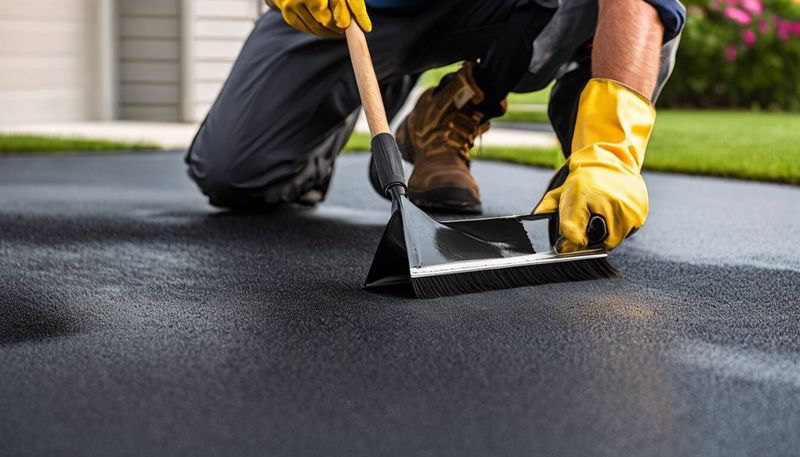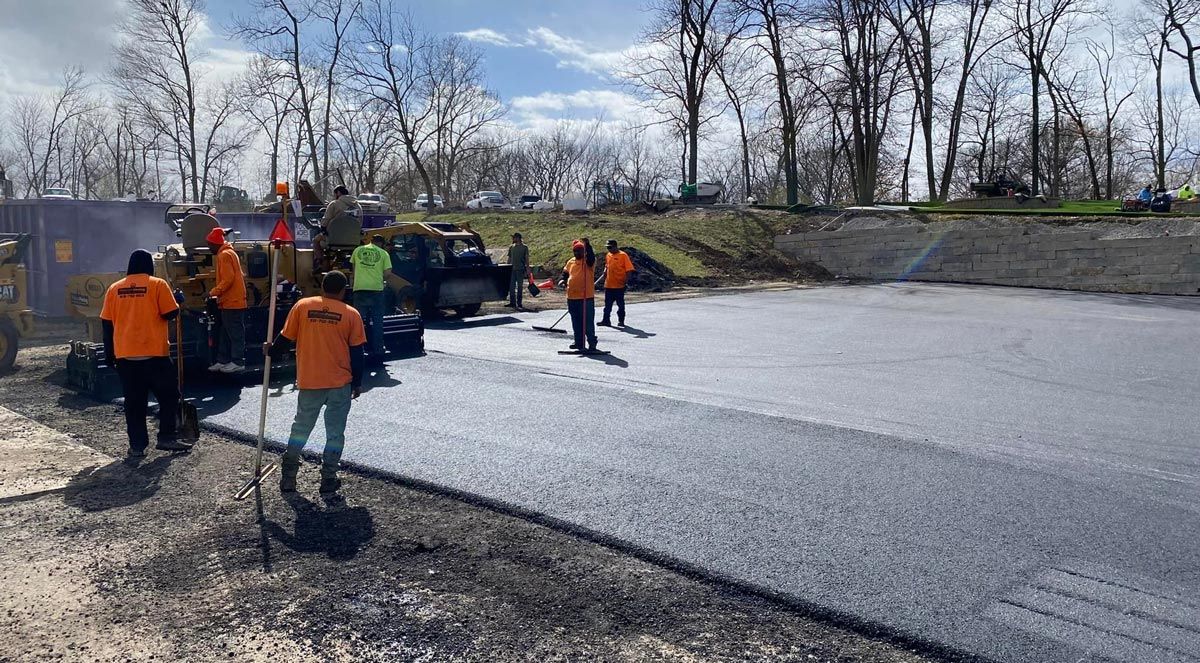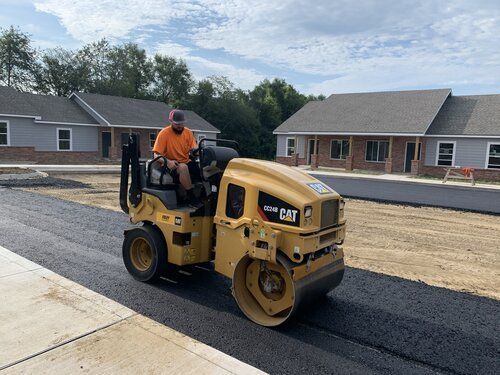Introduction
Asphalt surfaces, whether they are driveways or parking lots, represent a significant investment for homeowners and businesses alike. Over time, wear and tear can lead to cracks and potholes that necessitate repairs. But what happens after you've taken the step to repair your asphalt? This article will delve into What to Do After an Asphalt Repair? The Importance of Sealcoating, providing insights into why sealcoating is a crucial follow-up procedure. We’ll explore the benefits of sealcoating, how it protects your pavement, and various considerations surrounding asphalt maintenance.

1. Understanding Asphalt Repair
1.1 What Is Asphalt Repair?
Asphalt repair encompasses a variety of methods used to restore damaged asphalt surfaces. Common techniques include asphalt patching, where specific areas are repaired; and asphalt resurfacing, which involves applying a new layer over the existing surface.
1.2 Different Types of Asphalt Repairs
- Crack Sealing: Involves filling cracks with specialized materials to prevent water infiltration. Patching: A technique used for localized damage like potholes. Resurfacing: A complete layer replacement that rejuvenates the entire surface.
1.3 Why Conduct Asphalt Repairs?
Repairs prolong the life of your asphalt driveway or parking lot and enhance curb appeal. Not addressing these issues can lead to costly replacements down the line.
2. What to Do After an Asphalt Repair? The Importance of Sealcoating
2.1 The Role of Sealcoating
Sealcoating is a protective topcoat applied over asphalt surfaces after repairs have been made. This process serves as a barrier against harmful elements such as UV rays, oil spills, and moisture.
2.2 Benefits of Sealcoating Post-Repair
- Protection Against Weather Elements: Sealcoating helps shield your asphalt from rain, snow, and sun. Enhanced Durability: Extends the lifespan of your pavement. Improved Aesthetics: Provides a sleek black finish that enhances visual appeal.
2.3 When Should You Apply Sealcoat?
It's advisable to apply sealcoat shortly after completing repairs—typically within 6 months—to optimize protection.
3. Choosing the Right Sealcoating Products
3.1 Types of Sealers Available
There are several types of sealers available in the market:
- Coal Tar Emulsion: Known for its durability but may be less environmentally friendly. Asphalt Emulsion: More environmentally benign with decent performance characteristics.
3.2 Factors Influencing Your Choice
When choosing a sealant, consider factors such as environmental impact, cost, and local regulations regarding sealant use.
4. DIY vs Professional Sealcoating Services
4.1 Pros and Cons of DIY Sealcoating
While DIY might save you money upfront:
- Pros:
- Cost-effective Flexibility in scheduling
- Requires physical labor May not achieve professional-grade results
4.2 Advantages of Hiring Professionals
Professional services can offer:
- Expertise in application Quality materials Warranty on workmanship
5. How Much Does Sealcoating Cost?
5.1 Breakdown of Costs
The average cost for sealcoating typically ranges between $0.15 to $0.25 per square foot depending on various factors including region and contractor expertise.
| Factor | Estimated Cost | |--------------------------|----------------------| | Materials | $0.05 – $0.10 | | Labor | $0.10 – $0.15 | | Total per square foot | $0.15 – $0.25 |

5.2 Long-Term Savings from Sealcoating
Investing in sealcoating can save you money by reducing future repair costs significantly.
6. Best Time to Sealcoat Your Asphalt Surface
6.1 Seasonal Considerations
The best time for sealcoating is during dry months when temperatures are moderate (between 50°F and 90°F), allowing adequate curing time.
6.2 Frequency Recommendations
For high traffic areas, every two years is recommended; for residential driveways, every three years might suffice.

7. Preparing Your Asphalt for Sealcoating
7.1 Cleaning Procedures
Before applying sealcoat, ensure the surface is clean from debris, oil stains, or algae growth through:
- Pressure washing Manual scrubbing
7.2 Repairing Existing Damage
Any cracks or holes should be addressed before seal coating to ensure optimal adhesion and effectiveness.
8. The Application Process Explained
8.1 Step-by-Step Guide to Applying Sealcoat
Clean the surface thoroughly. Fill any cracks or potholes. Apply a primer if necessary. Use a squeegee or spray system for application. Allow adequate drying time before use.FAQs About Asphalt Repair and Sealcoating
Q1: How long does an asphalt driveway last?
A1: Generally speaking, with proper maintenance including regular seal coating, an asphalt driveway can last approximately 15 to 20 years.
Q2: Can I seal coat my driveway myself?
A2: Yes! However, hiring professionals ensures higher quality results due to their experience and access to better materials.
Q3: How often should I reseal my asphalt?
A3: For residential driveways, every three years is typically sufficient; commercial properties may require every two years due to heavier traffic.
Q4: What’s included in professional asphalt maintenance services?
A4: Professional services often include crack sealing, patching, surface cleaning, and application of sealant among other tasks tailored for longevity.
Q5: Is seal coating environmentally friendly?
A5: Many modern products are more environmentally friendly than older options; however, it’s vital to check product specifications before use.
Q6: What's the difference between resurfacing and sealing?
A6: Resurfacing involves applying a new layer over existing asphalt while sealing refers specifically to applying protective coatings on top of the current pavement layer.
Conclusion
In conclusion, understanding What to Do After an Asphalt Repair? The Importance of Sealcoating cannot be overstated as it plays a pivotal role in maintaining your investment over time—protecting against natural elements while enhancing appearance and extending lifespan significantly! Whether opting for professional services or taking on the task yourself—ensuring correct preparation and application will yield lasting benefits that keep your asphalt thriving for years down the road! Remember that investing in routine maintenance through methods like seal coating can save you asphalt paving substantial costs related to larger repairs down the line!
By following these guidelines regarding post-repair measures such as timely sealing—you'll ensure that your newly repaired surfaces remain functional while adding value both aesthetically & financially!